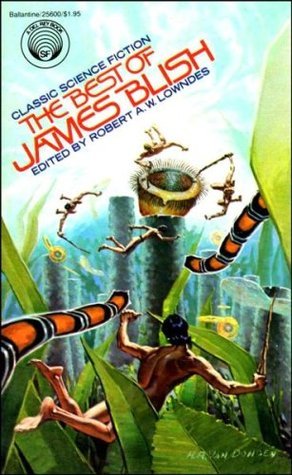What do you think?
Rate this book


358 pages, Mass Market Paperback
First published July 12, 1979
No man hath dared to write this thing as yet,He starts writing a piece based on it. No one is interested; they just think it's a curiosity. But he perseveres, until a much worse realization dawns. It's no good. His talent didn't survive being transported into his new corporeal being. And, worst of all, he's the only person in the world who even knows it.
And yet I know, how that the souls of all men great
At times pass athrough us,
And we are melted into them, and are not
Save reflexions of their souls.
Thus am I Dante for a space and am
One Francois Villon, ballad-lord and thief,
Or am such holy ones I may not write
Lest blasphemy be writ against my name;
This for an instant and the flame is gone.
'Tis as in midmost us there glows a sphere
Translucent, molten gold, that is the "I"
And into this some form projects itself:
Christus, or John, or eke the Florentine;
And as the clear space is not if a form's
Imposed thereon,
So cease we from all being for the time,
And these, the Masters of the Soul, live on.